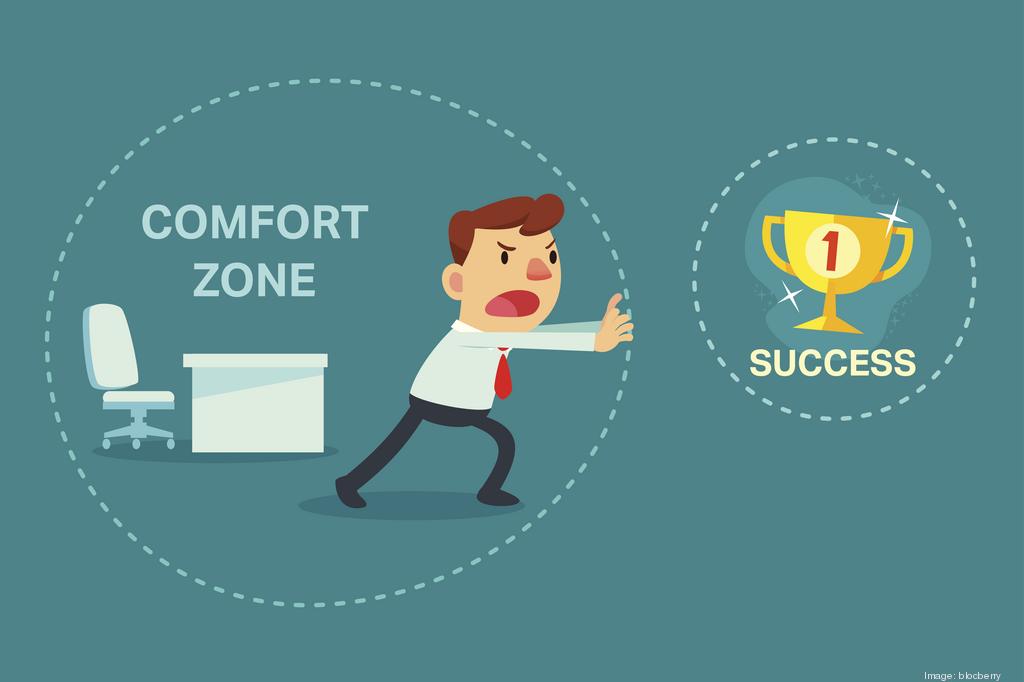Article originally published in the American City Business Journals on June 13, 2017
I have often written about the importance of getting out of your comfort zone so you can professionally grow and develop. Organizations should assign projects to employees that are outside of their comfort zones to help them in this process.
This was a lesson I learned early in my career at my company as the marketing manager for anhydrous sodium metasilicate used in a variety of metal cleaning and other industrial applications.
We faced imports of ASM into the United States from Rhone Poulenc, a large French chemical and pharmaceutical company at a price significantly below their home market price in France. We felt this was a violation of U.S. dumping regulations, designed to protect U.S. industry from unfair international trade practices.
ASM producers in the United States, including my company, were losing market share. If found guilty of dumping, the remedy would be the assessment of dumping duties on imported ASM from Rhone Poulenc.
As marketing manager of this product line, I received approval from my company to file dumping charges against Rhone Poulenc with the U.S. International Trade Commission. I was 33 years of age at the time, with no experience in these kinds of legal matters. However, my product manager and I knew the market well, which provided the foundation for building the case.
Normally, one would expect a case like this to be presented by outside attorneys with expertise in international trade. Our company’s general counsel hired this type of attorney. However, that attorney insisted that my product manager and I be the public face of our company’s case – testifying at all the fact-finding hearings as well as the hearing in front of the six commissioners of the International Trade Commission.
I recall flying to Washington, D.C. for an evidentiary hearing, asking our attorney at the airport just prior to boarding if he was ready to provide testimony for our company. He said, “No – you are going to testify today.” He said he didn’t tell me ahead of time because at this hearing, he didn’t want me to over prepare, but to just respond to his questioning.
It is hard for anyone to imagine the horror I felt not having written out in detail what I wanted to say. Talking about being outside of one’s comfort zone! Fortunately, I knew the facts, which helped me state my case, despite my trepidations.
The hearing accomplished the optics of what our attorney wanted – to pit a small privately owned, domestic company dedicated to serving the ASM market against a foreign company many times our size, competing illegally through low product pricing that met the criteria of dumping.
The preparation for the hearing in front of the International Trade Commission was very intense. Over a period of months, we responded to questions from the ITC investigative staff in preparation for the hearing in front of the ITC commissioners. The staff asked for significant details to ensure that the commissioners had the information needed to understand the dynamics of the market, determine if dumping was occurring and to render a decision.
We felt that our credibility with the investigative staff would be an important factor in the case. Whenever we realized that we had provided information that was inaccurate, we immediately corrected it, even if it hurt our case.
The hearing in front of the ITC commissioners was held in a chamber very similar to that of the Supreme Court. Somewhat intimidating!
At the ITC hearing, my product manager and I were well-prepared to give testimony as the plaintiffs. Our attorney told us that the ITC commissioners would be much more forgiving of violating courtroom protocols if we, two businessmen who are not attorneys, presented our case, with his guidance. In contrast, the Rhone Poulenc attorneys provided much of the testimony defending their client.
A pivotal moment occurred when the Rhone Poulenc attorneys misrepresented a meeting their clients had with us, accusing us of improper marketplace behavior. As I was listening to their mischaracterizations, I whispered to our attorney that we had notes of that meeting which countered their testimony. He asked me to pull the notes, and as he read them, a smile crossed his face.
Our meeting notes, entered into evidence, undermined much of Rhone Poulenc’s credibility.
When the ITC commissioners announced their decision, they unanimously found in favor of my company and against Rhone Poulenc. They assessed the highest dumping duty on any chemical imported into the U.S. to date. My product manager and I felt as if we had won gold medals at the Olympics.
So, what did we learn from this experience? Whether you are dealing with customers or the investigative staff of a federal agency, you develop credibility with those you deal with by always being honest and factual. This will differentiate you from those that aren’t. Credibility builds trust and confidence, and this will favor you in borderline decisions. We also learned to get out of our comfort zone. It’s a rewarding experience.
Leaders, expose your employees to meaningful experiences. Get them out of their comfort zones. There is no better way for them to develop.
Stan Silverman is founder and CEO of Silverman Leadership. He is a speaker, advisor and nationally syndicated writer on leadership, entrepreneurship and corporate governance. Silverman earned a Bachelor of Science degree in chemical engineering and an MBA degree from Drexel University. He is also an alumnus of the Advanced Management Program at the Harvard Business School. He can be reached at Stan@SilvermanLeadership.com.


Thanks, great article.